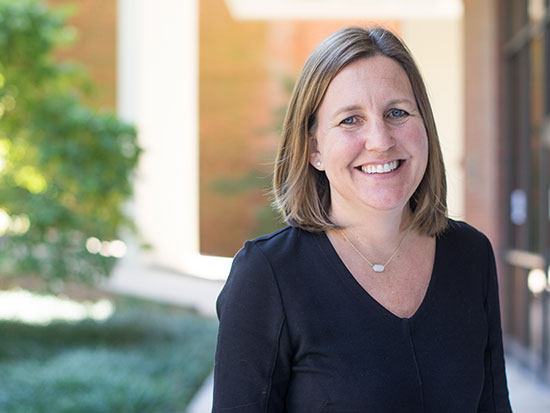The University of Alabama at Birmingham has experts available to discuss public health issues, economic impact, infrastructure and vulnerable populations in regards to damage from hurricanes. The UAB news studio is available for live or recorded expert interviews at no cost via the LTN global network and ISDN lines.
Water resource and infrastructure implications after major flooding
Jason Kirby, Ph.D., associate professor in Civil, Construction and Environmental Engineering
The implications of the volume of rainfall:
-
Damage to roads and foundations
-
Why diverting water out of dams is necessary
-
Could be weeks before Houston is “dewatered”; potentially months before infrastructure is stabilized
The difference between storm water sewage and drinking water systems.
Best practices in evacuation:
-
Sheltering in place is the best course of action
-
Challenges first responders face
Filing for insurance; response times
Media contact: Katherine Stephen (205) 975-3997, kshonesy@uab.edu
Public health concerns during major flooding
 Michelle Fanucchi, Ph.D., associate professor in Environmental Health SciencesDrinking water contamination:
Michelle Fanucchi, Ph.D., associate professor in Environmental Health SciencesDrinking water contamination:
-
Drinking water and water sanitation facilities are likely inoperable or overwhelmed
-
Flood water may be contaminated with oil, gasoline or raw sewage
-
Drink, cook and wash with bottled water only.
Returning home: service damaged septic tanks, cesspools or leaching systems immediately to mitigate continued contamination.
Contamination of household items during flooding
-
Any item that contacted floodwater should be disinfected (with bleach) and completely dried. This includes canned/bottled food items.
-
The mud from flood waters may contain sewage and chemicals.
Media contact: Alicia Rohan, (205) 975-7515, arohan@uab.edu
Hurricanes can affect gas price effects
 Bob Robicheaux, Ph.D., professor in EconomicsSeveral factors will impact gas prices:
Bob Robicheaux, Ph.D., professor in EconomicsSeveral factors will impact gas prices:
-
How quickly drilling platforms get back up to speed
-
How extensive the damage to infrastructure is
Gas prices will begin increasing nationwide even if there is still gasoline in the tanks:
-
Oil companies will act fast and raise prices
-
In these situations, prices go “up like rockets and down like feathers”
Prices could be affected for 3-4 weeks, or even months. Will likely see a $0.20-$0.45 temporary raise initially.
Media contact: Katherine Stephen (205) 975-3997, kshonesy@uab.edu
Hurricanes and vulnerable populations
 Lisa Baker, Ph.D., LCSW, associate professor in Social WorkSome populations are more vulnerable to the effects of a disaster than others, making it more difficult for them to prepare, evacuate, shelter, respond, and recover in the event of a disaster.
Lisa Baker, Ph.D., LCSW, associate professor in Social WorkSome populations are more vulnerable to the effects of a disaster than others, making it more difficult for them to prepare, evacuate, shelter, respond, and recover in the event of a disaster.
Baker can provide insight on the physical and mental health effects of disasters on the elderly, persons with disabilities, pregnant women and children, and those with mental health issues and how to respond.
Media contact: Tiffany Womack, (205) 934-8931, tiffanywestry@uab.edu
Infectious disease control during major flooding events
 Bernard Camins, M.D., associate professor in Infectious Diseases
Bernard Camins, M.D., associate professor in Infectious Diseases
- Water safety during times of flooding helps decrease the chances disease outbreak
- Wound care: contamination with flood water can increase risk for infection
- Hand hygiene: People should wash hands frequently with alcohol gel, foam or hand wash to avoid contracting respiratory infections and diarrheal illnesses, especially in crowded areas
Media contact: Alicia Rohan, (205) 975-7515, arohan@uab.edu
Transportation management issues under extreme weather events
 Virginia Sisiopiku, Ph.D., associate professor in Civil, Construction and Environmental EngineeringTransportation services needs under extreme weather events
Virginia Sisiopiku, Ph.D., associate professor in Civil, Construction and Environmental EngineeringTransportation services needs under extreme weather events
-
Evacuations before, during, or after an event
-
Delivery of emergency supplies and services, law enforcement, etc.;
-
Search and rescue operations; and
-
Transportation infrastructure repair.
Planning ahead for extreme weather events
-
When can you plan ahead?
-
What steps are needed for transportation disaster planning and risk management?
-
What tools are available to improve preparedness and response?
Challenges:
-
Evacuation of vulnerable populations
-
Infrastructure failure
-
Orderly evacuation and return
-
Coordination
Media contact: Katherine Stephen (205) 975-3997, kshonesy@uab.edu
Back to back storms leave no time for emotional recovery, "It's an issue of emotional band-width."
 Josh Klapow, Ph.D., clinical associate professor of psychology, School of Public HealthThe threat of another hurricane so soon after the double whammy of Hurricane Irma and Hurricane Harvey has played havoc on Americans still processing the first disasters.
Josh Klapow, Ph.D., clinical associate professor of psychology, School of Public HealthThe threat of another hurricane so soon after the double whammy of Hurricane Irma and Hurricane Harvey has played havoc on Americans still processing the first disasters.
“This is very much an emotional band-width issue,” Klapow says. “There is no time for people to regroup, refresh and prepare for another catastrophic event.”
Klapow says people in the possible paths of Irma will need to be reminded now more than ever of the need to take precautions.
“There is a lot of disaster burnout and people are yearning for good news,” he said. “There is a desire to take a collective deep breath and relax. It’s hard to gear back up for another serious event.”
He says authorities and the media need to stay on message: have emergency kits ready, know your evacuation route, have a communications plan, attend to your pets. The round the clock efforts by first responders can only last so long, yet the crisis is going to go for days, weeks, months.
Media contact: Bob Shepard, (205)934-8934, bshep@uab.edu